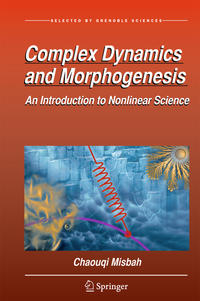
This book offers an introduction to the physics of nonlinear phenomena through two complementary approaches: bifurcation theory and catastrophe theory. Readers will be gradually introduced to the language and formalisms of nonlinear sciences, which constitute the framework to describe complex systems. The difficulty with complex systems is that their evolution cannot be fully predicted because of the interdependence and interactions between their different components. Starting with simple examples and working toward an increasing level of universalization, the work explores diverse scenarios of bifurcations and elementary catastrophes which characterize the qualitative behavior of nonlinear systems. The study of temporal evolution is undertaken using the equations that characterize stationary or oscillatory solutions, while spatial analysis introduces the fascinating problem of morphogenesis. Accessible to undergraduate university students in any discipline concerned with nonlinear phenomena (physics, mathematics, chemistry, geology, economy, etc.), this work provides a wealth of information for teachers and researchers in these various fields. Chaouqi Misbah is a senior researcher at the CNRS (National Centre of Scientific Research in France). His work spans from pattern formation in nonlinear science to complex fluids and biophysics. In 2002 he received a major award from the French Academy of Science for his achievements and in 2003 Grenoble University honoured him with a gold medal. Leader of a group of around 40 scientists, he is a member of the editorial board of the French Academy of Science since 2013 and also holds numerous national and international responsibilities.